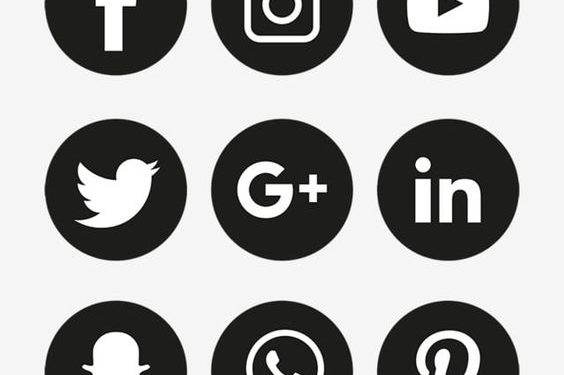Social media has become an integral part of our daily lives, allowing us to stay connected with friends and family, share experiences, and access information. However, as social media usage continues to rise globally, concerns have been raised about its impact on mental health. While social media can be a useful tool for promoting mental well-being and reducing isolation, it can also trigger negative emotions like anxiety and depression. In this blog post, we’ll explore the link between social media and mental health and provide tips on how you can use it in a healthy way to promote your overall well-being.
The Link Between Social Media and Mental Health
Social media has revolutionized the way we communicate and interact with each other. However, research suggests that excessive use of social media can have a detrimental effect on our mental health. Studies have found that individuals who spend more time on social media are likely to experience feelings of anxiety, depression and low self-esteem.
One reason for this is that social media presents us with an idealized version of reality – people typically share their best moments online, which can make us feel envious or inadequate in comparison. Moreover, scrolling through endless feeds can lead to a sense of isolation and loneliness.
The pressure to maintain an online persona can also be overwhelming, leading some individuals to experience “FOMO” (fear of missing out) or feeling pressured by the need to constantly present themselves in a positive light.
However, it’s important to note that not everyone experiences negative effects from using social media. In fact, there are ways in which social media can positively impact our mental health – such as providing access to support groups and helping reduce stigma around mental illness. Understanding how we use social media is key in promoting better mental well-being.
The Different Types of Social Media
Social media has become an integral part of our lives, with various platforms catering to different needs and interests. Here are some of the most popular types of social media:
1) Facebook – This platform allows users to connect with friends and family by sharing posts, photos, and videos.
2) Instagram – Primarily used for photo-sharing, this app also has a feature that allows users to go live or share short-form video content.
3) Twitter – Known for its character limit per post (280 characters), Twitter is a microblogging platform where users can share their thoughts and opinions on any topic.
4) Snapchat – This app focuses on ephemeral messaging, allowing users to send disappearing messages along with photos or videos.
5) LinkedIn – Geared towards professionals, LinkedIn is used for networking, job searching, and professional development.
6) TikTok – A relatively new platform that’s gaining popularity among younger generations. It features short-form videos set to music or audio clips.
Each type of social media caters to different audiences and serves unique purposes. It’s important to understand how each one works before deciding which platforms are best suited for your needs.
The Pros and Cons of Social Media
Social media has become an integral part of our lives. It offers us numerous benefits, but it also comes with its fair share of drawbacks.
One of the biggest pros of social media is that it allows us to stay connected with people from all over the world. We can easily keep in touch with family and friends who live far away, and even make new friends through online communities. Social media also provides a platform for businesses to promote their products and services, increasing their reach to potential customers.
However, social media can be addictive which may lead to negative consequences on mental health. It’s easy to get caught up in scrolling through endless feeds or comparing ourselves unfavorably against others’ highlight reels. This can cause feelings of envy, anxiety or depression that affect our mental well-being.
Another con is exposure to cyberbullying which results in emotional distress leading some individuals into self-harm or suicide attempts. Social media has also led people into sharing unrealistic content such as body image issues resulting in eating disorders among teens and young adults.
While there are many pros associated with social media use such as staying informed about current events and connecting with loved ones; there are just as many cons including addiction, comparison culture and cyberbullying that should not be ignored when using these platforms regularly.
How to Use Social Media in a Healthy Way
Using social media in a healthy way is all about using it mindfully and intentionally. Here are some tips to help you navigate the world of social media with your mental health in mind:
First, be intentional about what you consume on social media. Follow accounts that inspire and uplift you, and unfollow or mute accounts that make you feel anxious or inadequate.
Secondly, set limits on your screen time. It’s easy to get sucked into scrolling for hours on end, but this can have negative effects on both your mental health and your physical wellbeing.
Thirdly, practice self-awareness when using social media. Notice how certain platforms or interactions make you feel, and adjust accordingly.
Fourthly, consider taking breaks from social media altogether. If you’re noticing that it’s having a negative impact on your mental health, stepping away for a while can be incredibly beneficial.
Using social media in a healthy way requires mindfulness and intentionality. By being aware of how it affects us and making conscious choices around our usage habits, we can use these platforms as tools for connection rather than sources of stress.
What to Do If You’re Struggling With Your Mental Health
It’s important to recognize that social media can have a significant impact on our mental health. While there are certainly benefits to using social media, it’s crucial that we also acknowledge the potential negative effects it can have and take steps to use it in a healthy way.
If you’re struggling with your mental health as a result of social media use or any other factor, know that you’re not alone. There is help available, whether through therapy, support from loved ones, or other resources like hotlines or online communities.
It’s okay to take a break from social media if you need to prioritize your mental well-being. Remember that self-care is crucial for maintaining good mental health, and sometimes that means stepping back from things that aren’t serving us positively.
By being mindful of how we use social media and taking care of ourselves when needed, we can work towards creating a healthier relationship with technology and ultimately improve our overall quality of life.
















